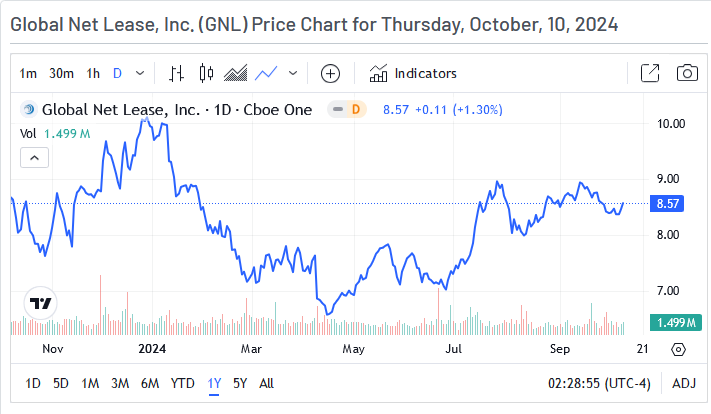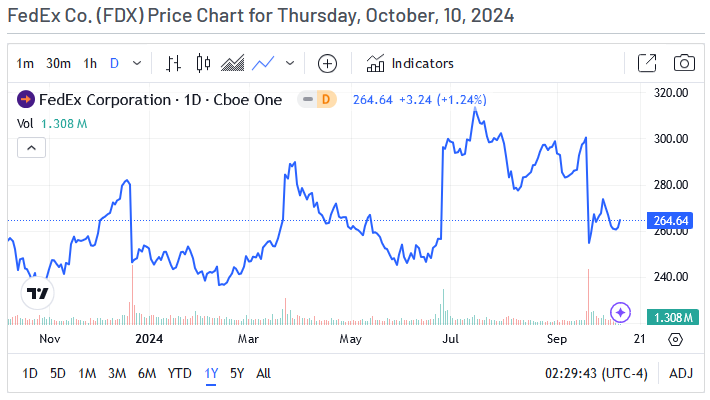- Contrarian investors seek undervalued assets with strong fundamentals that are overlooked due to temporary challenges or negative market sentiment.
- Patience is essential for contrarian investing, as it often takes time for the market to recognize the true value of these assets.
- Contrarian ETFs offer a diversified approach to this strategy, providing exposure to a basket of undervalued stocks with potentially higher returns.
While the stock market often rewards those who follow the crowd, there's a breed of investor who thrives on going against the grain. These are the contrarians, investors who seek opportunity in the assets others are discarding, believing that market pessimism has created a gap between price and value. This strategy requires an eye for undervalued fundamentals, unwavering patience, and the emotional fortitude to withstand the short-term volatility that often accompanies contrarian plays.
Decoding the Contrarian Playbook
Contrarian investing is a disciplined approach rooted in rigorous fundamental analysis. Contrarians sift through the wreckage of negative news cycles and industry headwinds, searching for companies with solid balance sheets, overlooked growth potential, or a clear path to recovery. The market is often swayed by short-term emotions, which can cause assets to be mispriced, creating a buying opportunity for those who can see beyond the immediate gloom.
Patience is not just a virtue in contrarian investing, it's the most potent weapon. These investments often take time to materialize, as the market may take months, even years, to recognize the true value of an asset. Contrarian investors must weather the storms of short-term volatility and resist the urge to follow the herd when panic sets in. But this patience, when coupled with a strong investment thesis, can lead to significant long-term gains, providing reassurance and confidence to contrarian investors.
1. Global Net Lease: Turning the Tide Amid REIT Sector Weakness
The Real Estate Investment Trust (REIT) sector has faced persistent challenges from rising interest rates, impacting tenant occupancy and investor sentiment. Global Net Lease (NYSE:GNL) is a small-cap REIT focused on commercial properties, and it has not been immune to these pressures.
Global Net Lease’s stock price is trading below its 52-week highs, and a year-to-date loss is approaching 15%. The market has expressed concern over GNL's substantial debt and a string of four consecutive years of GAAP losses. However, these very concerns have attracted the attention of contrarian investors, who see a potential disconnect between market perception and the company's underlying value. Global Net Lease’s earnings report for the second quarter of fiscal year 2024 (Q2FY2024) provides points that further support this contrarian view.
During the second quarter, Global Net Lease’s financials revealed the company reduced its outstanding debt by $251 million, a significant step towards alleviating investor anxieties about leverage. This reduction, coupled with a strategic disposition strategy focused on non-core assets, has resulted in an improvement in their Net Debt to Adjusted EBITDA ratio, moving from 8.4x to 8.1x. This strategic divestment approach has yielded significant proceeds, allowing GNL to increase adjusted funds from operations (AFFO) per share by 2% simultaneously, a sign that they're selling assets from a position of strength, not desperation.

Further strengthening the contrarian thesis, GNL's leasing portfolio exhibits characteristics prized by those seeking stability. With a weighted average remaining lease term of 6.5 years, the company enjoys predictable cash flow visibility. Notably, 59% of their annualized straight-line rent originates from tenants with investment-grade or implied investment-grade credit ratings, further reducing the risk profile.
In anticipation of further rate volatility, GNL has also taken steps to increase its fixed-rate debt to 99%, a prudent move for a leveraged REIT operating in a potentially turbulent rate environment. While GNL's path back to full market favor is challenging, recent actions and underlying portfolio characteristics suggest a company taking concrete steps to improve its financial standing. This combination of high yield (13.14%) and proactive management makes GNL a compelling case study in contrarian opportunity, particularly for those seeking income-generating investments within a volatile market landscape.
2. FedEx: Transformation Despite Uncertainty
Despite recent setbacks, some believe FedEx (NYSE:FDX) is poised for a contrarian rebound. FedEx’s earnings report for the first quarter of fiscal year 2025 missed revenue growth projections, and a shift towards lower-margin services is impacting profitability. This performance, coupled with analyst downgrades, has shaken market confidence. However, contrarians are looking beyond these immediate challenges, focusing instead on FedEx's ongoing operational overhaul.
The recent consolidation of FedEx Ground and Services into a single Federal Express entity was done in an effort to streamline operations and unlock significant long-term efficiency gains. This complex integration is creating short-term disruption, but contrarians believe it lays the groundwork for a more flexible and cost-effective organization. Additionally, FedEx is pursuing a multi-year cost reduction program known as DRIVE, targeting $2.2 billion in permanent savings. These initiatives are showing progress, but the full impact has yet to materialize, leaving some investors skeptical about their ability to offset current headwinds.

FedEx's management is actively deploying capital, demonstrating their confidence in the company's long-term prospects. A $1 billion accelerated share repurchase program has been completed, and an additional $1.5 billion in buybacks is planned for fiscal 2025.
These actions signal a belief in the company's underlying value and a commitment to shareholder returns. Nevertheless, FedEx's success hinges on overcoming significant macroeconomic challenges. A potential recession and ongoing supply chain disruptions threaten to impact revenue and profitability further. For contrarian investors, FedEx presents a high-stakes bet on long-term transformation, but one that requires a patient outlook and a willingness to accept heightened risk in the near term.
Patience, Discipline, and a Keen Eye for Value
Contrarian investing is about recognizing when fear and short-term thinking have created opportunities to acquire solid assets at a discount. This approach demands rigorous research, a long-term mindset, and the ability to withstand the inevitable volatility that comes with defying popular sentiment. It's not for the faint of heart, but for those with the discipline and commitment to uncover genuine value where others see only problems, contrarian investing offers the potential for outsized returns.
